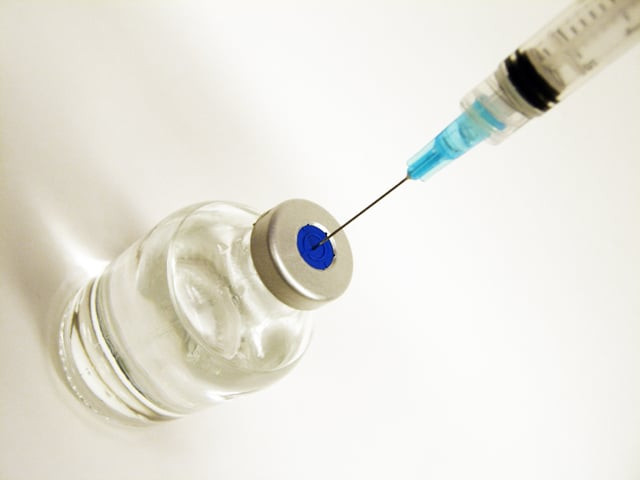Health and women: Fighting cervical cancer, one vaccination at a time
More than 275,000 women die of cervical cancer annually; around 500,000 cases are reported annually across the world

56% of K-P’s children are covered under routine vaccinations, compared to 66% in Punjab, 16% in Balochistan and 29% in Sindh, Child Rights Movement provincial coordinator Azazuddin shares. PHOTO: FILE
Women and their health, according to a team of doctors speaking at a seminar on Wednesday, has never been a priority of the government or its people.
The doctors were having a detailed discussion about the female body at a seminar titled 'United against Cervical Cancer' organised by the Society of Obstetrics and Gynecology, Pakistan (SOGP) in collaboration with the Association for Mothers and Newborns (Aman), the Aga Khan University and Hospital (AKUH) and the Pakistan Pediatric Association's (PPA) Karachi chapter.

Cervical cancer, the doctors explained, is an uncommon type of cancer which develops in a woman's cervix - the entrance to the womb. There is an abnormal growth of cells that have the ability to invade or spread to other parts of the body. It is difficult to diagnose in the early stages as there are no symptoms apart from bleeding after intercourse, in-between the menstrual cycle or after menopause.
It is estimated that more than 275,000 women die of cervical cancer every year and around 500,000 cases are reported annually across the world. The cancer is preventable but is the second leading cause of death from cancer in low and middle-income countries.
According to the chairperson and head of department of pediatrics at the Baqai Medical University's childrens' hospital, if families can spend millions on their daughter's wedding, they should be able to spare some money to get their daughter vaccinated against the cancer.
"The vaccination serves as a primary means of prevention from cervical cancer," said executive member of Aman, Dr Sadiah Ahsan Pal. "Women should ask their physician and gynecologists about it."
Discussing latest medical research, she said that girls should be vaccinated against the cancer as soon as they turn nine. "Two injections with a gap of six months are a must for girls between the ages of nine to 14," she said. "For those who are 15 and above, three injections are needed - the first two will be given with a gap of one month and the third one after six months."
The AKUH's Prof Rozilla Saadia claimed that it was important for women to get a pap smear test to check if there is an abnormal cell growth. She said that women should get a pap smear test every couple of years till the age of 65. Prof Saadia added that if you haven't already gotten a pap smear done, it was time to make an appointment with the doctor.
Published in The Express Tribune, January 29th, 2015.



















COMMENTS
Comments are moderated and generally will be posted if they are on-topic and not abusive.
For more information, please see our Comments FAQ